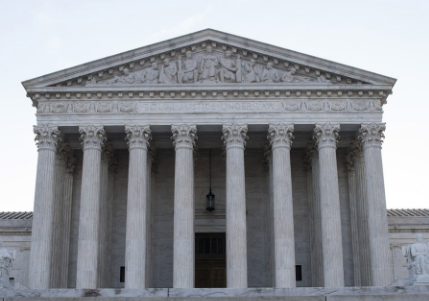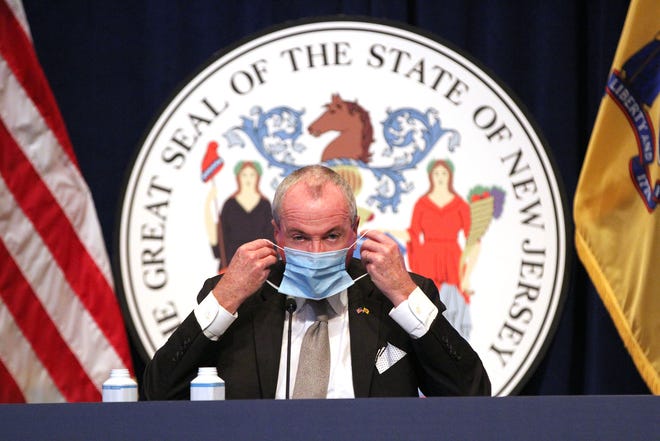
Terrence T. McDonald NorthJersey.com
The U.S. Supreme Court on Tuesday ruled in favor of a North Caldwell Catholic priest and a Lakewood rabbi who sued Gov. Phil Murphy over coronavirus restrictions on worship services, with the court vacating a lower court ruling that was in Murphy’s favor.
The move comes less than a month after the high court ruled in favor of New York houses of worship that challenged New York Gov. Andrew Cuomo’s pandemic restrictions. Tuesday’s action was not a ruling on the merits of the New Jersey case, but an unsigned order remanding it to the U.S. 3rd Circuit Court of Appeals and ordering judges there to reconsider their decision in light of the Cuomo ruling.
Lawyers for the New Jersey priest and rabbi called the decision “a huge victory for religious freedom.” They had argued to the Supreme Court that Murphy’s orders restricting attendance at religious services but allowing larger crowds to gather at casinos, retail locations and outdoor protests is unconstitutional.
“We are getting a very clear message from the United States Supreme Court that government cannot set up any rules that apply to places of worship, or worship activities, but not to other, comparable secular activities,” said Christopher Ferrara, special counsel with the conservative law group the Thomas More Society. “This is the very crux of religious discrimination and a blatant abuse of the United States Constitution and its amendments.”

Gov. Phil Murphy’s executive order on indoor gatherings limits religious services to 25% capacity, with a maximum of 150 people.
A spokesman for Attorney General Gurbir Grewal declined to comment. Grewal’s office supported the move to remand the case to the 3rd Circuit.
A Murphy spokesman did not immediately respond to a request for comment.
The plaintiffs, the Rev. Kevin Robinson and Rabbi Yisrael Knopfler, initially lost their request for a temporary injunction against Murphy’s restrictions when U.S. District Judge Claire Cecchi ruled on Oct. 2 that Murphy’s order is “narrowly tailored to serve a significant government interest.” The plaintiffs appealed, and on Nov. 10, the 3rd Circuit also sided with Murphy.
The court’s Nov. 25 ruling against Cuomo was a major victory for religious leaders who said Cuomo’s restrictions violated constitutional protections of religious expression. The court, in a 5-4 decision striking down those restrictions, said, “Even in a pandemic, the Constitution cannot be put away and forgotten.”
Abner Greene, a Fordham Law professor, said when the Supreme Court sends a case to a lower court and asks it to reconsider based on a new ruling, that doesn’t necessarily signal which way the lower court will re-rule.
“Sometimes the SCOTUS ruling will be very much on point and the lower court will have to change course,” Green said. “Other times the lower court ends up saying, ‘OK, we’ve taken a look at the recent SCOTUS opinion and we’re sticking by our ruling because we think our situation is sufficiently different.’ “
The Supreme Court on Tuesday also sided with a Colorado church that had sued that state over restrictions put in place by Colorado Gov. Jared Polis.
Terrence T. McDonald is a reporter for NorthJersey.com. For unlimited access to the most important news from your local community, please subscribe or activate your digital account today.